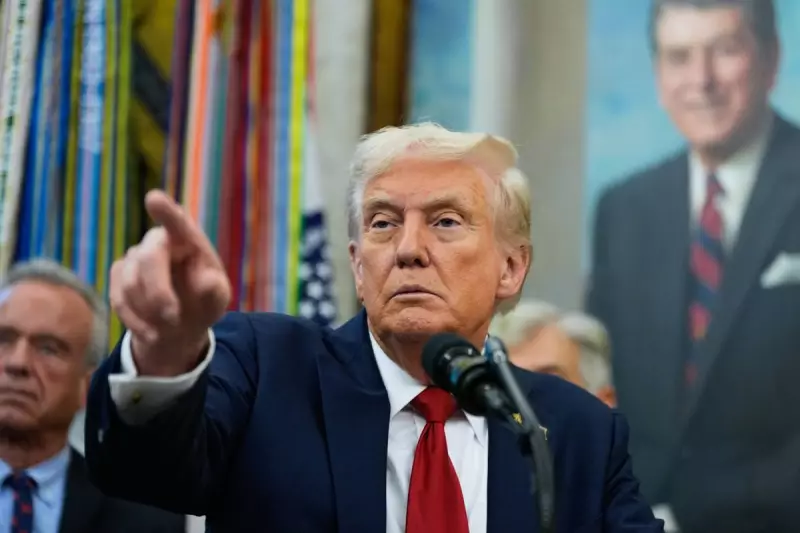
In a surprising development that bridges politics and international football, former US President Donald Trump has reportedly made direct approaches to FIFA president Gianni Infantino regarding hosting rights for the 2030 World Cup.
According to sources familiar with the matter, Trump expressed his vision for bringing the prestigious tournament back to American soil during conversations with world football's most powerful administrator. The approach comes despite the United States already being scheduled to co-host the 2026 World Cup alongside Canada and Mexico.
Political Football
The revelation raises questions about the intersection of political influence and sporting governance. Trump's involvement in World Cup bidding processes isn't entirely new - he previously engaged with Infantino ahead of the successful 2026 bid during his presidency.
However, this latest approach for 2030 hosting rights demonstrates the former president's continued interest in leveraging major sporting events for both political and national prestige.
FIFA's Delicate Position
Football's world governing body finds itself navigating complex diplomatic waters. With Infantino having cultivated relationships with numerous world leaders during his tenure, the organisation maintains that such discussions are part of normal operations.
A FIFA spokesperson commented: "The FIFA President meets with many key stakeholders across politics and business as part of his role developing football globally. All host selection processes follow strict governance protocols."
Competitive Bidding Landscape
The 2030 World Cup hosting race already features several strong contenders:
- A joint bid from Spain, Portugal and Morocco
- A South American proposal involving Uruguay, Argentina, Paraguay and Chile
- Potential interest from Saudi Arabia and other Gulf nations
Any US bid for 2030 would face significant logistical and political hurdles, particularly given the upcoming 2026 tournament in North America.
Broader Implications
This development highlights the increasingly political nature of major tournament hosting decisions. With countries recognising the soft power and economic benefits of hosting global sporting events, the competition extends far beyond the football pitch.
As the 2030 decision approaches, all eyes will be on how FIFA balances sporting merit with geopolitical considerations in its host selection process.




